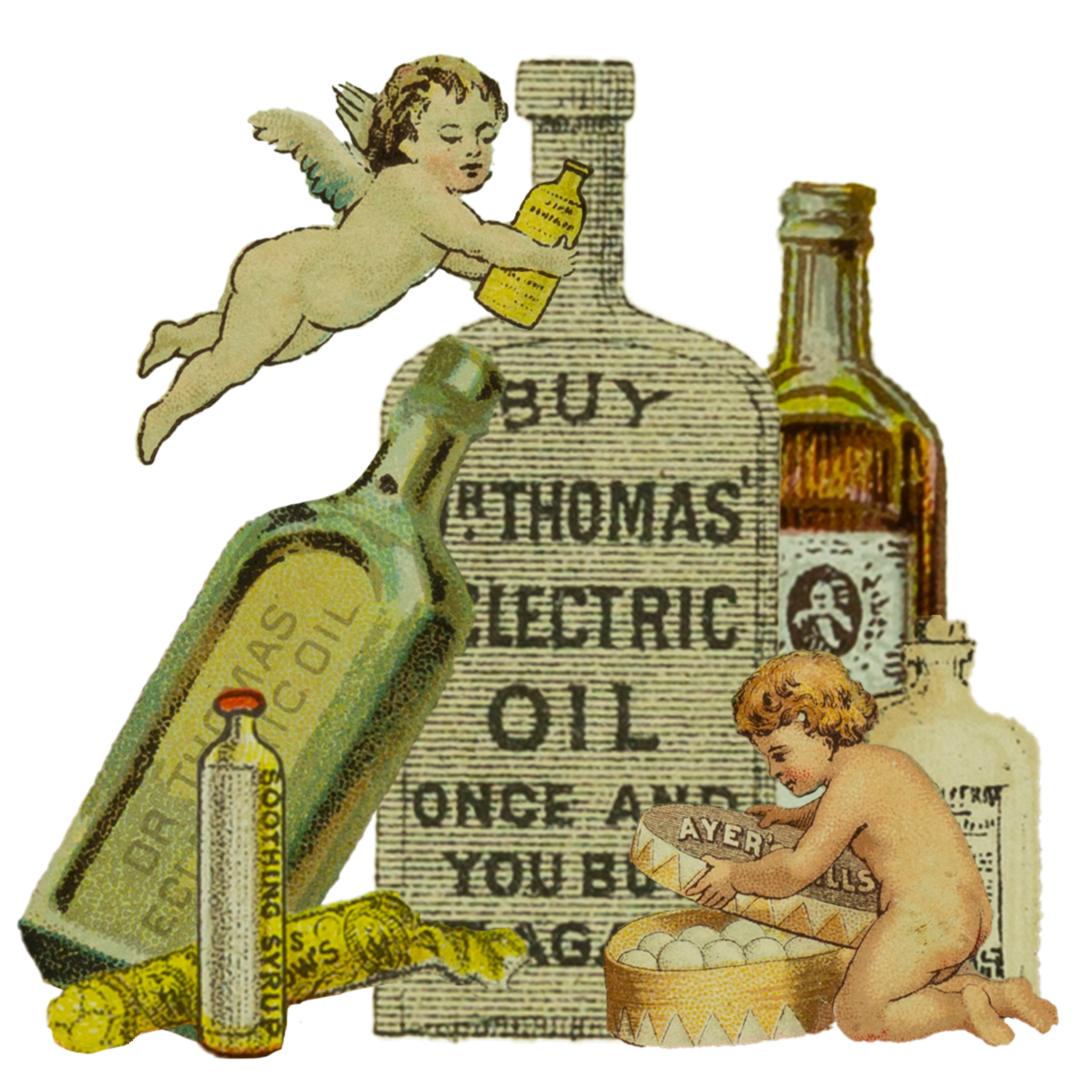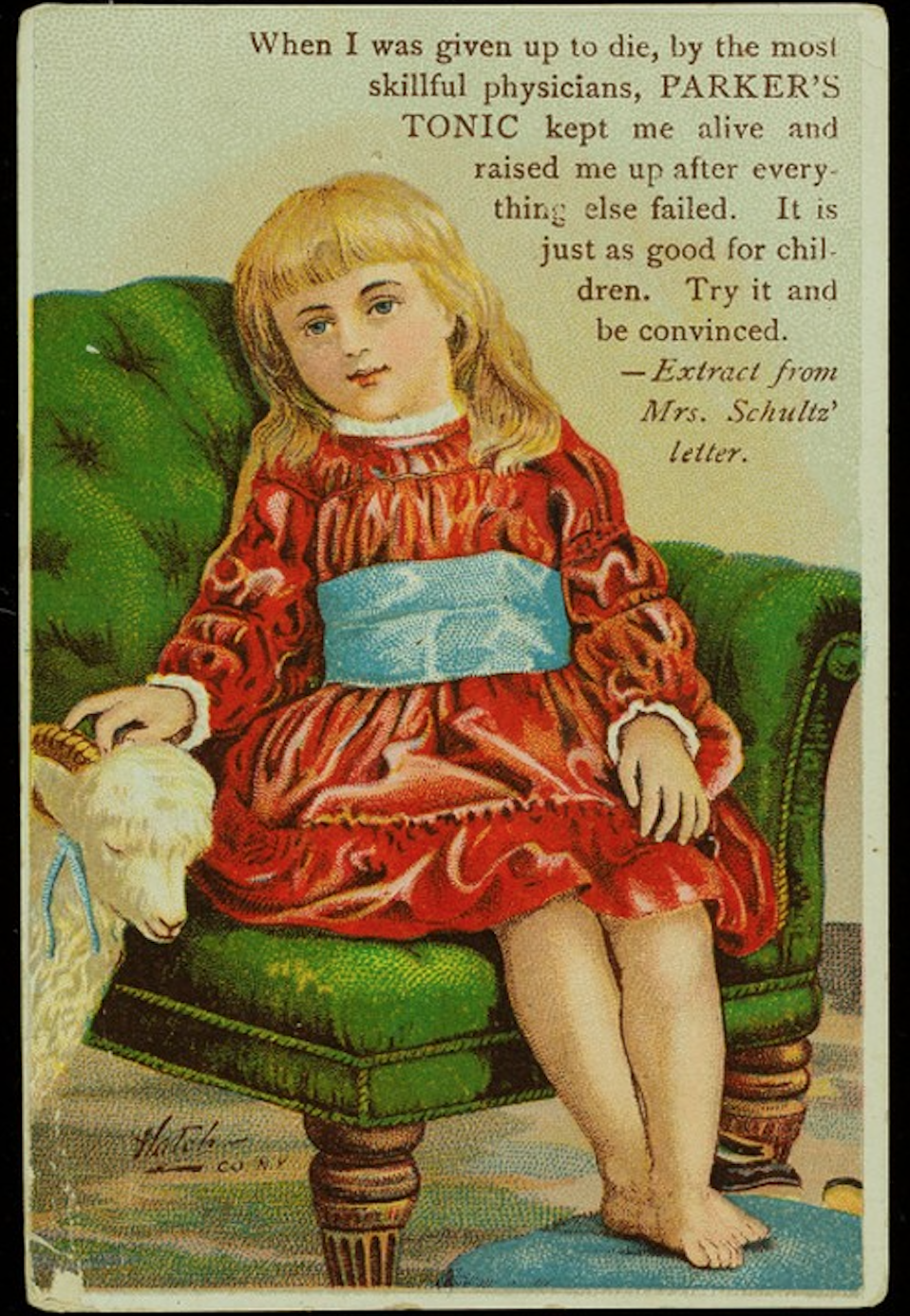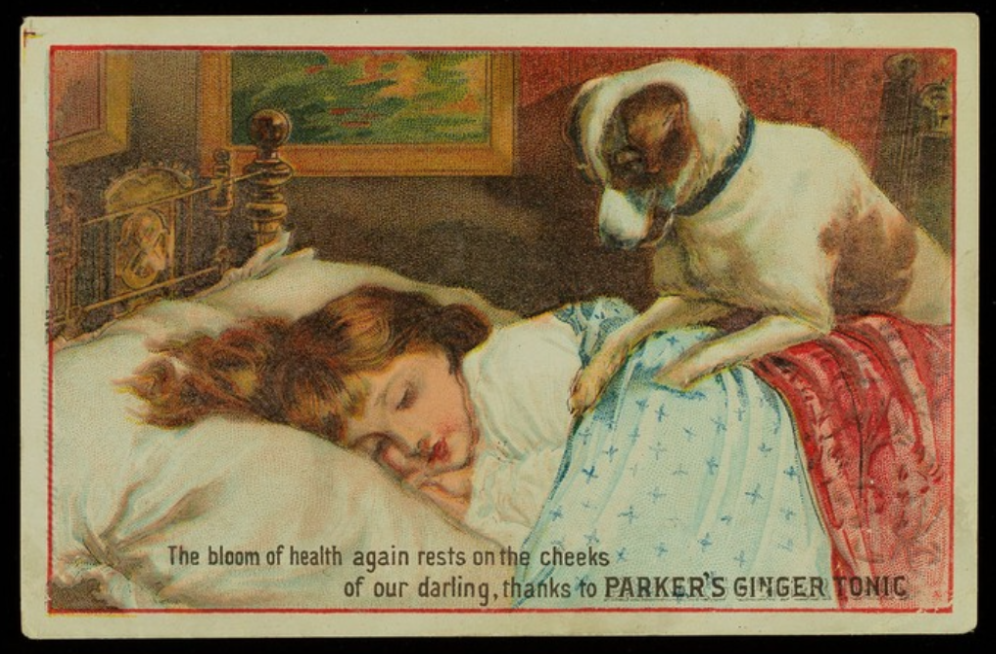Ask more!
Now that you know more about the tips and tricks drug advertisers use to sell their products, take the next step! It is time to carefully evaluate the themes and messages of pharmaceutical advertisements. Recent research by Dr. Helen Sullivan (2020) has shown that these ads directly influence patients, including patient interactions with their health care providers. Using data from the National Survey of Health Information and Communication, Dr. Sullivan found that over 75% of people were likely to talk to their health care provider about medications they saw advertised. Approximately 34% of patients found pharmaceutical advertisements helped them talk with their health care providers.

However, the survey also uncovered some potentially problematic effects of direct-to-consumer drug advertisements. For instance, 16% of viewers mentioned that pharmaceutical advertisements had caused them to question the advice of their health care provider and 23% mentioned that they were likely to look for a new health care provider if their current provider refused to prescribe a medication seen in an advertisement. A separate study by a team of mental health professionals (Green, 2017) found that among survey respondents with serious mental illness (depression, bipolar disorder, or schizophrenia), a staggering 59% had missed or decided not to take doctor-approved medications due to the side-effects listed in drug advertisements.
The findings highlight some of the important issues viewers need to take into consideration when viewing seriously considering the information provided in pharmaceutical ads. Before leaving a health care provider or discontinuing medications, patients need to critically evaluate the claims being made by the advertisement. Remember, direct-to-consumer drug advertisements can indeed educate viewers and help improve health, but their main purpose is to sell products.
![]() IMPORTANT!
IMPORTANT!
The FDA recommends you think about the following questions when you see an ad for a prescription drug. Also, keep these questions in mind when you talk to your health care provider or pharmacist:
What condition does this drug treat?
Why do I think that I might have this condition?
If I have the condition, am I part of the population the drug is approved to treat?
Should I take this drug if I have a certain condition?
Should I take this drug if I am taking certain other drugs?
Which of the drug's possible side effects am I concerned about?
How will this drug affect other drugs I am taking?
Will foods, beverages (alcoholic or non-alcoholic), vitamins, or other supplements affect how this drug works?
Are there other drugs that treat my condition?
Is there a less costly drug I could use to treat my condition?
What else can I do to help deal with my condition? For example, should I exercise or change my diet?
Do other drugs for my condition have different side effects?
How can I learn more about this condition and this drug?
Further advice to consider when evaluating drug advertisements comes from Harvard physician, Dr. Robert H. Shmerling (2019). In a post on the Harvard Health Blog, Dr. Shmerling identifies specific examples of persuasive language pharmaceutical advertisements often use to sell their products. Phrases to look out for include:
“A leading treatment for this condition...” This may be true, but how many approved medications are there for this particular condition? It’s important to know what the other options are and how all available treatments compare before making any decisions.
“No other treatment has been proven better...” This statement makes it seem as is the advertised drug is the best in its class, however this wording really means a medication may only be as effective as older and less expensive medications.
“In clinical studies, this medication proved more effective than standard treatment...” While this sounds good, it is important to know how effective standard treatment actually is. Perhaps this medication is more effective, but it might be only slightly more effective, and come with more side effects and at a more expensive price.
“This drug gave me my life back...” Personal statements like this are powerful. The problem however is that what works for one person may not work for 10 others. Scientific studies are meant to determine the effectiveness of medications to make sure they are proven effective to the largest number of patients. Statements like this however are not based on science. On top of this, drug advertisements often use paid actors to portray patients, so what they are saying may not even be true!

"When I was given up to die...", an example of persuasive language used to connect with viewers and sell a product, from Parker's Tonic & Parker's Hair Balsam trade card. Source: Medical Center Archives of NewYork-Presbyterian/Weill Cornell Medicine, https://www.jstor.org/stable/community.28305435

"The bloom of health again rests on the cheeks...", an example of persuasive language as seen on Parker's Ginger Tonic & Parker's Hair Balsam trade card. Source: Medical Center Archives of NewYork-Presbyterian/Weill Cornell Medicine, https://www.jstor.org/stable/community.28305425

"...the finest Preparation of it's kind every produced...", an example of persuasive language as seen on Risley's Witch Hazel trade card. Source: Medical Center Archives of NewYork-Presbyterian/Weill Cornell Medicine, https://www.jstor.org/stable/community.28312796
Learn More!
Once you have thought critically about what medication advertisements are trying to tell you, it is time to investigate the medications and health conditions of interest. You may choose to directly talk with your health care provider or pharmacist after you have developed your questions. Many people also find it helpful to search online for more information. We recommend MedlinePlus and DailyMed as two trustworthy sources of drug information.
When searching the internet for any medication or health condition, it is very important to visit only reputable, trustworthy websites. As we did when evaluating drug advertisements, we need to again pay close attention to the websites we visit to learn more about our health. Some questions to keep in mind include:
Who is running the website you are visiting?
Is it run by a professional health organization, university, or a government health agency?
Are any affiliations with the above types of organizations clearly identified?
If authors are listed, are they health care professionals? If not, are their qualifications for writing on this subject provided?
Is the information provided up to date?
Do they ask for your personal information, or for payment?
If after investigating further you have any questions regarding the quality or trustworthiness of the webpage you are evaluating, follow your instincts and leave. For more information on how to best evaluate health information websites you can refer to MedlinePlus’s Evaluating Internet Health Information Tutorial.
MedlinePlus
MedlinePlus (www.MedlinePlus.gov) is a free, trustworthy database of health information provided by the National Library of Medicine (NLM), a division of the United States’ National Institutes of Health (NIH). It presents high-quality health and wellness information that is easy to understand, in both English and Spanish. You can find information on a variety of health conditions, human genetics, medical tests, medications, dietary supplements, and even healthy recipes here.
There is no advertising on MedlinePlus, and there is no bias toward any companies or their products. Because of this it is an excellent place to learn more about health condition or medication of interest. We recommend MedlinePlus be the first place you visit when looking for health information.
![]()
Take a Look!
DailyMed
DailyMed (https://dailymed.nlm.nih.gov/) is a free, trustworthy drug database provided by the National Library of Medicine (NLM), in partnership with the Food and Drug Administration (FDA). This website provides easy access to images of specific drugs, as well as any product packaging required by the FDA. It also provides clinical research data on the effectiveness and safety of FDA-approved medications.
In general, the content of DailyMed is written and presented at a higher level than MedlinePlus, but it is a reliable place to turn when interested in more details about specific medications.
![]()
Take a Look!
Knowledge of the Past and Present for a Healthier Future
Pharmaceutical advertisements are everywhere, and as we have seen, they are a double-edged sword. While they can introduce viewers to important new drugs, they can also be misleading and encourage patients to act without consulting their health care providers. The persuasive power of drug advertisements has been refined over the centuries, from vintage pharmaceutical trade cards to online webpages. However, now that you know the questions to ask, and the free, reliable online resources to search, we hope that you can empower yourself to be a more educated health care consumer! It is our hope that this knowledge will lead you and your family to a healthier future!

As you evaluate and investigate further, remember advertisements and databases do not take the place of a knowledgeable health care provider or pharmacist. Always take the time to consult with a health care professional when looking to begin or adjust your medications. You can also speak with a public or consumer health librarian. These information professionals can help you identify reputable health information if you are having trouble finding it on your own. They also are also often educated in evaluating the reliability of health information and can help you identify claims that may be misleading or examples of misinformation.
At Weill Cornell Medicine - New York Presbyterian, the Myra Mahon Patient Resource Center is available to support WCM-NYP patients with any health information needs. Many large health care centers have these consumer health information professionals available, so when in need look to see if there is a consumer health library or resource center near you!
And with this, we say, Congratulations! You have now completed our Snake Oil workshop!
![]() IMPORTANT!
IMPORTANT!
This webpage has been developed by the support of Weill Cornell Medicine’s Samuel J. Wood Library, created by a team of WCM faculty, including medical librarians, a pharmacist, and an archivist. Developed resources reported in this project are supported by the National Library of Medicine (NLM), National Institutes of Health (NIH) under cooperative agreement number UG4LM012342 with the University of Pittsburgh, Health Sciences Library System. The content is solely the responsibility of the authors and does not necessarily represent the official views of the National Institutes of Health.


